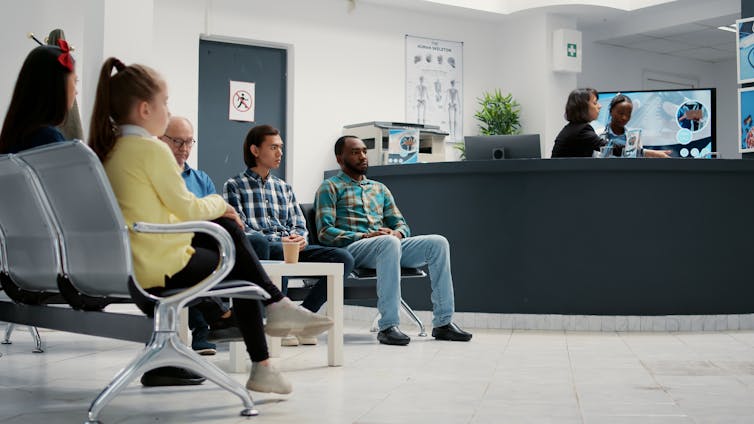
A backlash against EDIA (equity, diversity, inclusion and accessibility) is gripping Canadian medicine. This is no surprise for a historically conservative institution, but as a family physician who has dedicated more than 20 years to ensuring we address social inequities in front-line care, I worry our efforts to prioritize the health of those most socially marginalized could face a setback.
The latest outcry started with the November 2023 call for feedback on an interim report from the group shaping the next iteration of the renowned CanMEDS framework.
CanMEDS outlines the core competencies of medical professionals in Canada and guides medical school curricula. The interim report includes a powerful direction statement on EDIA that suggests an intentional focus on the root causes of inequity as they shape medical practice.
Within hours of its release, the report was attacked by physicians on X (formerly Twitter). Many illustrated their critiques with sarcasm and personal vitriol. A deluge of comments poured into the CanMEDS website. The pushback has continued, including a recent opinion piece in the Toronto Star.
Table of Contents
A false dichotomy
The EDIA report’s critics target a call to “de-centre” medical expertise in favour of a focus on equity and related concepts like anti-oppression, decolonization and anti-racist practice. They promote a misguided premise: that training physicians to approach their interactions with equity front of mind will diminish their ability to learn and provide the highest quality expert medical care.
This is a false dichotomy. Medical expertise and an equity lens do not sit in opposition — they easily co-exist, and in fact strengthen each other.
The report’s authors clarified, in two commentaries in peer-reviewed journals and in a debate on a Canadian Medical Association Journal podcast, that they did not intend to devalue medical expertise, but rather to embed a deeper focus on equity in the core of medical education and practice.
Physicians will always prioritize applying sound scientific evidence, wisdom and skills to the complex realities of human bodies and lives. We have done that well for centuries. Our challenge now is to do that well for everybody, and to accept that those realities include differences in health caused by discriminatory structures of our society.
Unequal health outcomes

(Shutterstock)
Medicine has a history of complicity in the systems of power and privilege that cause harm to groups with the least power. The health outcomes we achieve for people from these groups — including Indigenous, Black, women and queer individuals — are markedly worse than for people with more social privilege.
The institution of medicine has been built on the same foundations of power inequality, racism, colonialism and oppression as the rest of our society.
Read more:
Black health matters: Don’t Call Me Resilient EP 5
As Canadian society grapples with the daunting task of identifying and trying to root out these inequities from social structures, so must medicine. Truth and reconciliation for Indigenous Peoples, explorations of anti-Black racism and commissions on gendered differences in pay pose dramatic challenges to all our social institutions. Medicine, by necessity, is very much engaged in this movement to change.
The proposal to “de-centre” medical expertise suggests we enhance our knowledge with a new understanding and skill set, one specifically targeted at reducing disparities in health outcomes. Medical expertise alone is great for those with social privilege, but not enough for the rest.
Equity-oriented change
A body like CanMEDS, deeply embedded in and reflective of the institutions of medicine, does not set out to lead change. It seeks to reflect the current and evolving state of medical practice. The developers of this framework must keep up with contemporary, evidence-based understandings of how medicine can best position itself to provide services in a world increasingly aware of differences in power and privilege.
The reasons for this backlash are complex. They sit within a more general revolt against EDIA, perhaps in response to the rapid implementation of equity-focused programs in the past few years. It is no surprise that these changes feel particularly threatening in medicine, an institution deeply embedded, and complicit, in constructs of social privilege.
Read more:
Equitable medical education can be achieved with efforts toward real change
The process of equity-oriented change, however, is well on its way and is hopefully unshakeable. The health and social goals of medicine will not change — to apply our expertise and skills to improve health for all. If challenging health inequities requires questioning structures of power, then this must, and will, sit at the centre of the work of all physicians.
The evidence supports this transformation and the pillars of the profession, like the CanMEDS competencies, are appropriately reorienting. No change is easy. In this case it is necessary, inevitable and will position us to achieve healthier outcomes for everyone we serve.
![]()
Gary Bloch has received funding from the Foundation for Advancing Family Medicine, the St. Michael’s Hospital Foundation and the University of Toronto and St. Michael’s Departments of Family and Community Medicine. He is a Board Member of Inner City Health Associates.
























